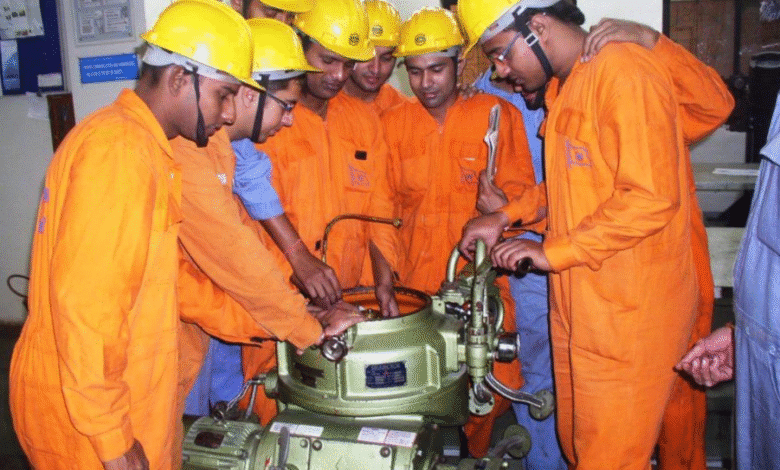The Role of oil purifier in Industrial Maintenance

Introduction
In industrial settings, machinery and equipment rely heavily on oil to function effectively. Whether it is transformer oil, hydraulic oil, or lubricants used in heavy machinery, the quality of oil directly impacts the performance and longevity of these systems. Over time, oil becomes contaminated with water, gases, particles, and sludge, leading to decreased efficiency and potential equipment failure. An oil purifier is a device designed to remove these impurities and restore the oil’s original properties, thereby ensuring smooth operation and preventing costly breakdowns.
What is an oil purifier?
An oil purifier is a specialized machine that processes used or contaminated oil to remove water, gases, solid particles, and other impurities. It uses various methods such as filtration, vacuum dehydration, and degassing to clean the oil and make it reusable. The purifier plays a critical role in industries that depend on oil-filled equipment, such as power generation, manufacturing, automotive, and oil refining.
Importance of oil purification
Purifying oil extends the service life of both the oil and the equipment it lubricates or insulates. Contaminants like moisture reduce the dielectric strength of transformer oil, while particles can cause abrasion and wear in hydraulic systems. Removing these impurities results in several advantages:
- Enhances equipment reliability and reduces downtime
- Lowers maintenance and replacement costs
- Prevents equipment damage and safety hazards
- Supports environmental sustainability by reducing waste oil disposal
Using an oil purifier helps companies maintain operational efficiency and adhere to environmental regulations.
Types of oil purifier machines
Oil purifiers come in various configurations depending on the type of oil and contaminants. Common types include:
- Vacuum oil purifiers: Use vacuum pressure to remove dissolved water and gases. They are widely used for transformer oil purification.
- Centrifugal oil purifiers: Employ centrifugal force to separate solid particles and water from oil. These are useful for heavy fuel oils and lubricants.
- Pressure filtration purifiers: Use filter elements under pressure to trap solid contaminants. Suitable for cleaning hydraulic and lubrication oils.
- Thermal purifiers: Heat the oil to reduce viscosity, improving impurity separation efficiency.
The choice of purifier depends on the application requirements and contamination severity.
See also: Technology in Commercial Cleaning: Innovations Shaping the Industry
Working principle of an oil purifier
The operation of an oil purifier generally involves several stages:
- Heating: The oil is heated to a specific temperature to reduce viscosity and facilitate impurity separation.
- Vacuum dehydration: Heated oil is subjected to vacuum conditions to extract moisture and gases.
- Filtration: The oil passes through multiple filters that trap solid contaminants and sludge.
- Degassing: Remaining dissolved gases are removed, restoring the oil’s insulating and lubricating properties.
This multi-stage process ensures that the purified oil meets industrial standards for reuse.
Applications of oil purifier
Oil purifiers have diverse applications across industries, such as:
- Power industry: For purification of transformer and insulating oils to maintain dielectric strength.
- Manufacturing: To clean hydraulic and lubrication oils used in machinery.
- Oil and gas: For treating turbine and compressor oils.
- Automotive: For recycling used engine and gear oils.
- Marine industry: To maintain engine and fuel oils, ensuring efficient operation.
The versatility of the oil purifier makes it indispensable for equipment maintenance in many sectors.
Benefits of using an oil purifier
Implementing an oil purifier system provides numerous benefits:
- Cost savings: Reduces the need to purchase new oil frequently by recycling and reusing.
- Equipment protection: Clean oil reduces wear and tear, extending machinery life.
- Environmental protection: Minimizes hazardous waste generation and promotes sustainability.
- Operational efficiency: Maintains oil quality, leading to smoother and safer machine operations.
Companies that adopt oil purification practices often see improved productivity and reduced downtime.
Maintenance of oil purifier machines
To ensure optimal performance, regular maintenance of oil purifier machines is essential. Key maintenance steps include:
- Timely replacement of filters to prevent clogging
- Monitoring vacuum and temperature gauges to ensure proper operation
- Cleaning and inspecting pipelines and seals for leaks
- Checking and calibrating control systems periodically
Proper maintenance helps maintain the efficiency of the purifier and prolongs its service life.
Advances in oil purifier technology
Technological innovations have made modern oil purifiers more efficient and user-friendly. Features such as automated control panels, real-time oil purifier monitoring sensors, and energy-efficient components are now standard. These improvements allow operators to optimize the purification process, reduce energy consumption, and detect issues early, preventing failures.
Additionally, portable and modular oil purifier units have been developed, allowing for on-site purification in remote or temporary locations, adding flexibility for industrial operations.
Choosing the right oil purifier
Selecting the appropriate oil purifier depends on several factors:
- The type and volume of oil to be purified
- Level and type of contamination
- Required purification speed and capacity
- Automation and control preferences
- Budget and after-sales service availability
A thorough assessment ensures the chosen machine meets the specific needs of the industry or application.
Conclusion
An oil purifier is a vital piece of equipment for industries relying on oil-filled machinery and systems. It ensures that oil remains clean, safe, and effective, protecting equipment from damage and reducing operational costs. With ongoing advancements in technology, oil purifiers have become more efficient, reliable, and accessible.
Investing in a high-quality oil purifier and adhering to regular maintenance routines will not only extend the life of oils and equipment but also contribute to environmental sustainability. Whether for power transformers, hydraulic systems, or industrial lubricants, an oil purifier is an indispensable tool for modern industrial maintenance.





